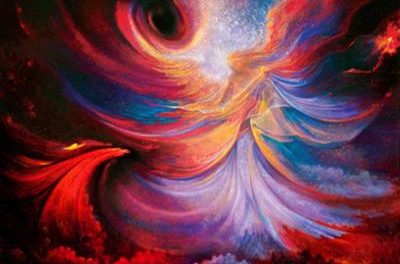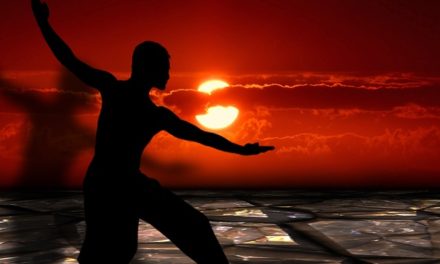It feels like I spent my summer writing and rewriting this blog as shoes kept dropping left and right. As I put the finishing touches on this piece, another shoe landed heavy on our hearts with a resounding thud. Trump, through his surrogate, Jeff Sessions, announced the termination of DACA protection for almost 800,000 undocumented persons who were brought to this country as children by their parents and now may be facing eventual deportation from the only country that they know to foreign lands. The exasperation over the cruel and unjust nature of this most the recent announcement is expressed in the first sentence below and in all sentiments that follow.
The insidious tedium of the worst of times is that just when you think it can’t get any worse, it does.
Enter the Boys of Summer – Donald and Harvey. Maelstroms in our midst, they have whipped and whirled us into a frenzy of dislocation leaving nothing but wreckage in their path. Harvey, with fierce winds and unrelenting waters, uprooted foundations and lives, stole the past and robbed the future for thousands of Americans. Donald, with gusts of vacuous braggadocio and spews of self-serving vitriol cuts the same swath of destruction. Both ruthlessly faithful to their nature, they do what they do best at the peak of their power – wreak havoc.
But be wary. It is not only what Donald and Harvey have in common that sends up flares. It is how their paths differ that sends up chills.
It is too soon to calculate the long-term losses that Harvey will exact from his victims. Thousands of people remain homeless, bereft of the life they once knew, without resources to rebuild, clinging to remnants of hope while a deflated Harvey whimpers away.
Meanwhile, an inflated Donald is gathering force to hunker down for the duration. What has become increasingly clear is that the cunning fox and his cronies have devised a malevolently simple plan of divide and conquer that assumes the cynicism of all despots towards their subjects: Appeal to the worst of self through the rallying rhetoric of conversion; Bait the best of self through the puerile provocation of confrontation. You got Donald’s back, he’s got yours. You’re in his face, he’s in yours. He lifts you up. He wears you down. He divides. A house divided cannot stand and will collapse in on itself. Camouflaged as chaos, the name of the endgame is moral implosion. Whether he knows it or not, the Bad Boy from New York has crossed a line to the dark side.
Chances are that Donald may not know where his fragile, hungry ego has landed him. There is no self-awareness there. Hannah Arendt in her iconic work, “The Origins of Totalitarianism” defined evil as the inability to hear any voice other than your own. Not the voice of reason. Not the voice of sanity. Not the voice of decency. Not the voice of love. Not the voice of the other. Not, certainly, the voice of any God. Evil preens and postures in the absence of self-reflection. Evil abhors the voice that questions.
And so this is what I learned on my summer vacation. The question is our endgame. On the high road, the question is the compass that directs us ever deeper and deeper into the best of ourselves. To question is the unique privilege and responsibility of being … to harken to the call of curiosity to venture beyond the narrow landscape of individual survival into vast unknowns of experience and understanding. It is the response of imagination to enter realms that unsettle the fragile assurances of our ego and exhilarate the tenuous longings of our soul. The question is never about the answer. It is about connection —taking apart and reconfiguring the world to evolve it forward into new relationships of possibility. As such, the question is a prayer. A hope that insists on the best of self in the worst of times making the imponderable sacred instead of making us scared.
For the next few blogs, I would like to host an ongoing discussion/meditation on questions to lead us out of the worst of times into the best of self.
The first question that comes to mind in this highly charged atmosphere of divisiveness is What is Sacred? In the interests of defending partisan ideologies and principles, all manner of sacrilege is committed in terms of how we see, understand and communicate with one another. Not to mention the veneer of despair that begins to edge our days, creep into our spirits, rob us of energy. What would happen if we were to commit to finding the sacred in our daily lives, in our workplace, in our neighborhoods, in ourselves and in one another as regularly as we turn on the news or peek at our iPhone headlines?
Keep company with the sacred that is everywhere for a few days and observe what happens to dearly held assumptions that inform choices. What does that question ask of you? How does the question shape the thoughts that determine your actions? Then take the question out of your head and delicately place it in a room full of folks who may or may not be kindred spirits. Might there be some common threads of understanding implicit in this question to create lifelines of communication?
Please join in on the conversation by commenting in the space below. Feel free to respond to this question or to pose another question.
Should you need a little inspiration, I encourage you to listen to the exquisitely joyful interview below with Martin Sheen. His story is a witness to the unpredictable meanderings of the Sacred who often dwells “where we are least likely to look.”





Having sat with your reflection a bit Mary Byrne, I respond with gratitude for your gift of language that characterizes these times and for your invitation to enter the conversation. I do so with perspectives from several “teachers”.
The imagery you offered ~ “wreckage” from the power of nature and the power of ego … the later, a vortex of microscopic tweets and sweeping executive orders, have driven most of us into an unsettled wondering if there was ever such a time, and maybe even if this time is the “end-time”. One of my teachers is Richard Rohr. I recently journeyed through his Living School. He reminds us that this time is passing away, and invites us to rest in “deep time” … the kairos time of “eternal now”. As his 13th century Franciscan sister St Clare would say “…place your mind before the mirror of eternity”. We need to cultivate contemplative mindedness to avoid getting wrapped up and devastated by this moment in human history, and free ourselves to allow the Spirit to work in and through us to manifest our full share in this cosmic journey.
The second “teacher” Martin Sheen, comes from my long-time association with the Catholic Worker, and his behind-the-scenes, activist relationship with them for most of his life. Sheen images for us notoriety not caught up in ego, but used for the greater good – life congruent and authentically lived through devotion to family and choices of work in his craft, and decades of committed activism for a just and peaceful planet. I “second” the use of your link to view his “Spirituality of Imagination” … all the way to the (spoiler) ending where he affirms “…the genius of God to dwell where we would least likely look ~ our own darkness … our own humanity …”
Lastly, a breathtaking quote from Joseph Campbell, and the irony that all is sacred ~
“We have not even to risk (these times) alone … for the heroes of all time have gone before us; the labyrinth is thoroughly known; we have only to follow the thread of the hero-path. And where we had thought to find an abomination, we shall find a God; where we had thought to slay another, we shall slay ourselves; where we had thought to travel outward, we shall come to the center of our own existence; where we had thought to be alone, we shall be with all the world.”
Amen and alleluia, sister, for those beautiful words of wisdom and consolation … gems to catch the light of our ever enduring spirit.
Thank you, M B for your words of wisdom so needed to be spoken and listened to in these tumultous times.
What is sacred, you ask, in our daily lives, neighborhoods, places of work, in our very selves?
Life, all of life is sacred.
But only when I/we live it consciously, aware of what we are doing and why, not merely filling up time or space, not living habitually, or because something is expected. Someone (?) once said that wisdom is life that knows it is living. Wisdom comes via experience, through decisions and actions, and reflection on and discernment re: our decisions and actions.
Life, all of life is sacred.
All that surrounds me and fills me is sacred. I am connected to, one with the sacred…the tangible and intangible. The sun warms me, waters refresh me and wind carresses me; the earth with its plants and animals feed me. My sisters and brothers welcome me into community; they challenge and support me. The intangibles of time, silence and solitutde enable me to reflect on my experience and discern how I will move out into all the surrounds me…of which I am an integral part…and for which I am responsible…the sacred.
What is the way of refiguring our world to evolve it forward into new relationships of possibility?
“I have called you by name.” I/we have been called by name to be prophets in these horrendous times. Prophets name the reality of what’s going on under our noses and behind our backs.
Lack of awareness of the sacred, of what’s really going on, leads to violation and abuse, rape and plundering, destruction of that which is sacred. Homeless persons are showing us. Nature is telling and showing us; storms rage and destroy.
Prophets are called to speak.
Those who are incapable of listening to reality dare to label what is good and what is bad, what is of value and what is worthless, what is truth and what is fake news. Wisdom and understanding do not come from some big mouth on twitter who tells us something one day that he contradicts over and over. Wisdom, understanding and awareness for which we are responsible come from experience; they come from listening and learning from those we trust because we see they act with justice.
We have been a part of creating this world in which we live. We are responsible for it. We are responsible for fostering love, respect, compassion and justice. We are called to re-create our world so all may experience and benefit from the gifts of creation, the gifts of our God..We are called to be pro;hets in the here and now of these times. Let us speak with our actions, using words only when necessary.
Thank you, Millie! You make many excellent, thought-provoking comments. Your understanding of the sacred as living consciously as opposed to habitually is particularly relevant to this times so cluttered with distraction.